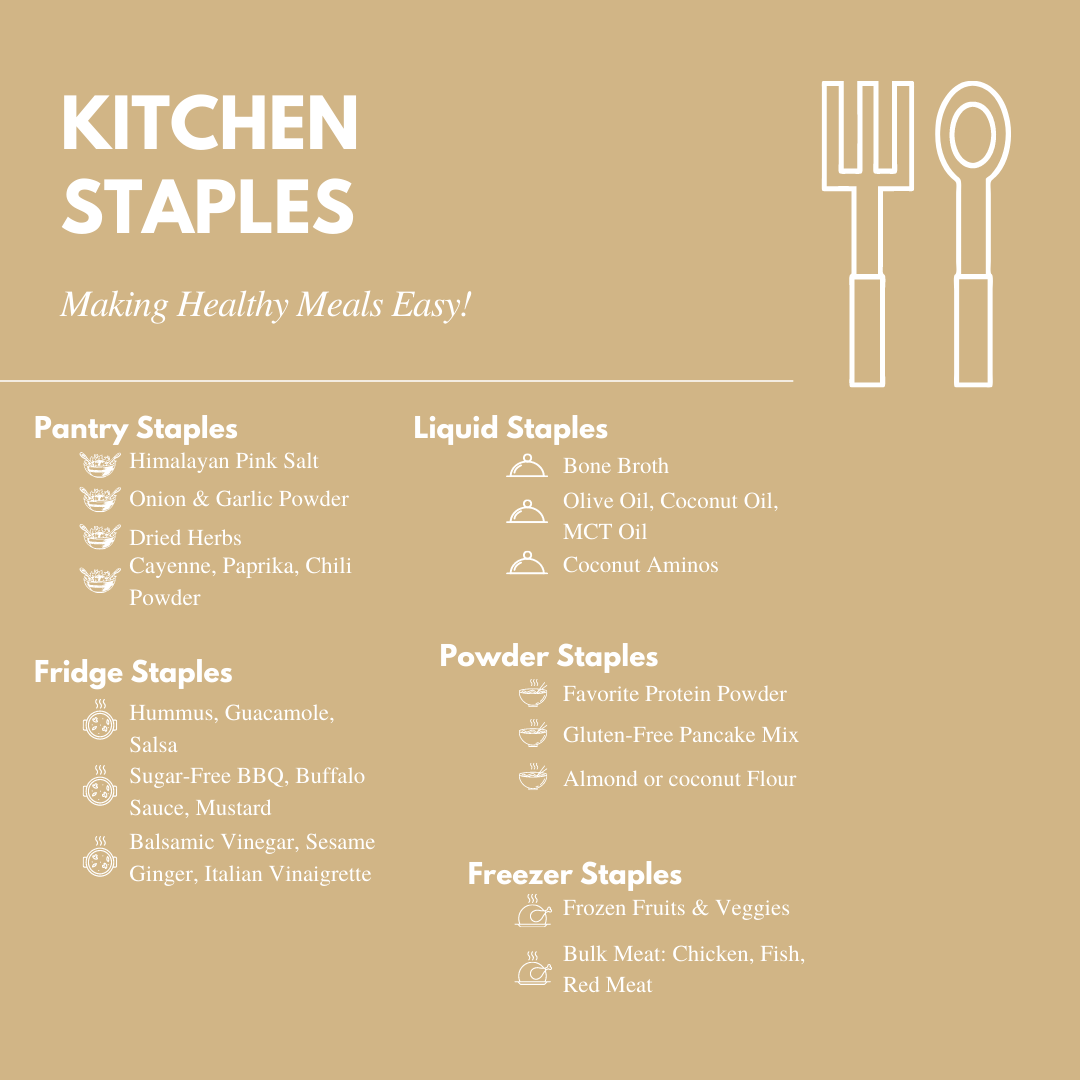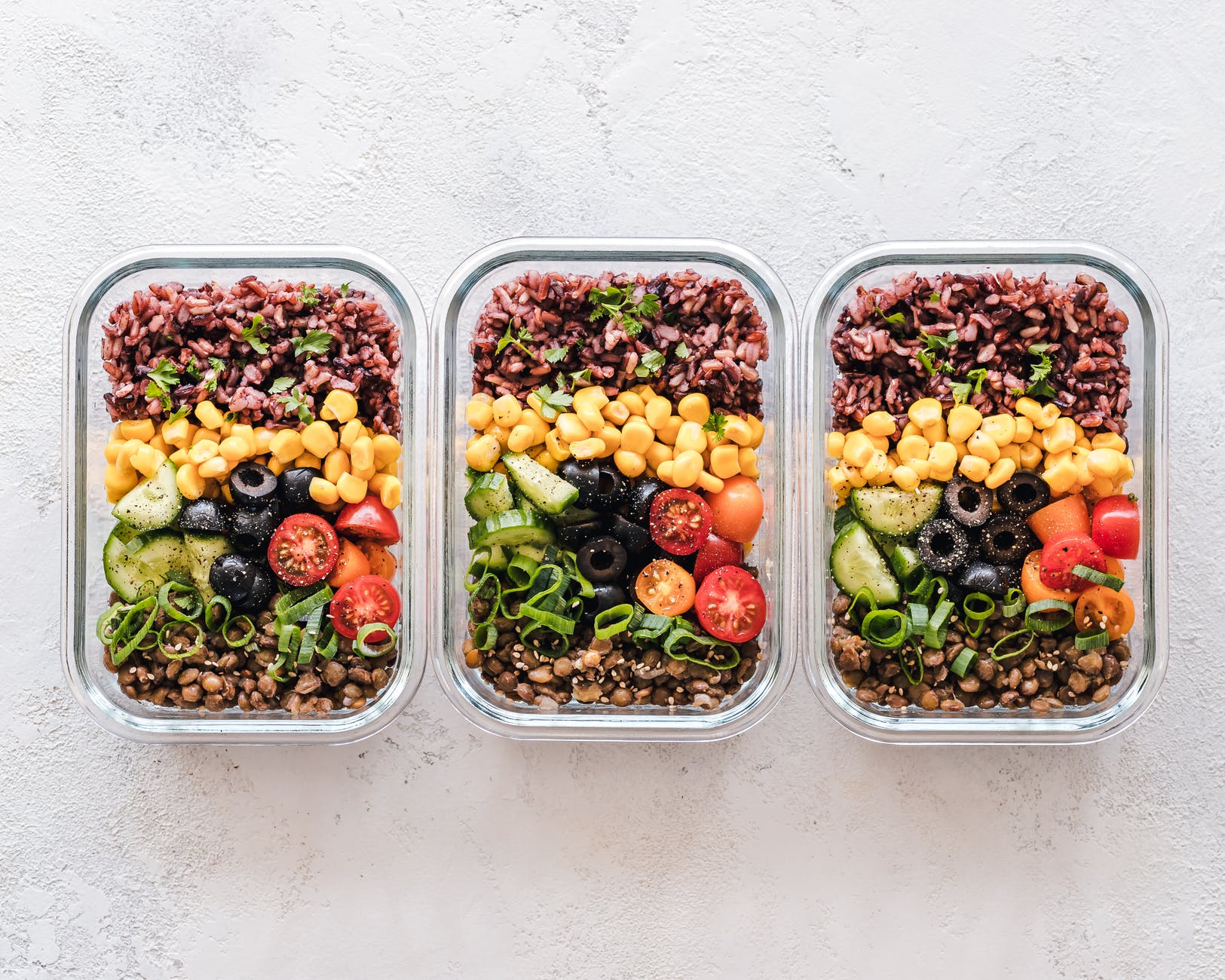How to Be Your Own Nutritionist: Improve Your Overall Health
Learn the 3 biggest things you can do today to improve your eating habits, overall health, and be becoming your own nutritionist!
Eat this, not that. Try this diet, not that one. You’re doing everything right, so why aren’t you seeing results? Well, you must not be working hard enough…
ENOUGH!
Every day we’re bombarded with a diet culture that profits off keeping us in the dark about our health. But, not anymore! Today, we’re finally breaking down the educational barrier between you and your future healthy eating habits. Follow these 3 tips to becoming your own nutritionist and taking control of your health.
TIP #1: Cleanin’ Out The Closet… of the Kitchen
When it comes to becoming your own (or your family’s) nutritionist, you almost have to become a nutritional accountant — auditing what foods come out of the house and into our mouths. Luckily, it’s as simple as cleaning out your closet. Only in the kitchen!
Remember having to go through your over-stuffed dressers and packed closets to create some more space in your room? Well, we’re doing the same thing in your kitchen… only the space we’re making is for healthier habits. Start by self-auditing your fridge, freezer, and pantry by asking yourself the following questions:
- Will this help move me positively towards my goals? If no, pitch it.
- Does this have more than 10-12 ingredients? If yes, it likely is full of gums, stabilizers, and other highly processed and unnecessary ingredients.
- Is this expired, stale, or no longer used? If yes, dump it.
Once you take the skeletons out of your kitchen’s closet, it’s time to replace those pitched items with healthier alternatives such as these Kitchen Staples:

TIP #2: Start with the Big Stuff… a.k.a Macros!
Macros are short for “macronutrients,” and refer to the Big 3 nutrients that make up our foods. Carbs, proteins, and fats should be present in each one of your meals. Macros are the building blocks to our total calories, but regardless of our calorie needs, the foods we choose to fill our calories with matter!
Imagine a diet full of salmon, avocados, and rice versus a diet of fast food burgers, cookies, and soda. One has the potential to lead to a healthier, happier version of you in the long run while the other simply tastes good in the moment. Fill your plate with healthy, scrumptious macronutrients to improve your overall health:
Carbohydrates: carbs are delicious, help fuel our day, and assist in digestion due to their fiber content. But, be careful to not cling to one type of carbohydrate. Fill your plates with different fruits and vegetables as well as the traditional carbs that come to mind like rice, potatoes, and oats.
Proteins: protein helps to build muscle and keep us satisfied/full. Aim for at least a fist-sized protein at every meal, and if exercising, add an additional fist-full post-workout. As well, don’t be afraid to mix it up in the kitchen and play around with more than just chicken breasts. Add one new protein to your cart each week!
Fats: fats are crucial for happy hormone function as well as vitamin absorption. Plus, they’re just so dang tasty! However, too little or too much can negatively impact health. So, play around with how much olive oil you cook with or how much cheese you sprinkle on your eggs in the morning.
Signup for our newsletter to receive the grocery guide. You’re one step closer to being your own nutritionist!
TIP #3: Fill in the Holes… The Importance of Micronutrients
Now that you’ve created the foundation of great health, it’s time to fill in the cracks. These cracks come in the form of micronutrients like vitamins, minerals, fiber, and food-quality. While not as glamourous as the macros listed above, the nutrients play key roles in supporting your overall health.
And you can get your fill of many key micronutrients from fruits and vegetables. Cruciferous veggies, in particular, provide key nutrients to aid in liver detox and hormone health. Fruits, on the other hand, provide a hefty source of fiber to support digestion and overall gut health.
When searching for products high in micronutrients, aim to fill your cart with high-quality foods. This includes organic or locally-sourced fruits and veggies that will naturally have higher micronutrient levels.
Finally, one of the most over-looked habits for improving your overall health is water! While I would technically consider water a macronutrient, it’s often treated as such a minute part of our nutrition. Water not only helps transport nutrients throughout your body but also flush out the body’s byproducts no longer needed. Aim for 3-4 liters of water a day… or simply keep drinking until your urine is clear.
Congratulations! You’re on your way to becoming your own nutritionist. With a little trial and error, and lots of practice, you and your family will be set to take on a healthier lifestyle with every meal you prepare!
Recommended Reading for Self Care: Self-Care Ideas for A Solid Mental Health
Additional Reading: Healthy Eating Tips


